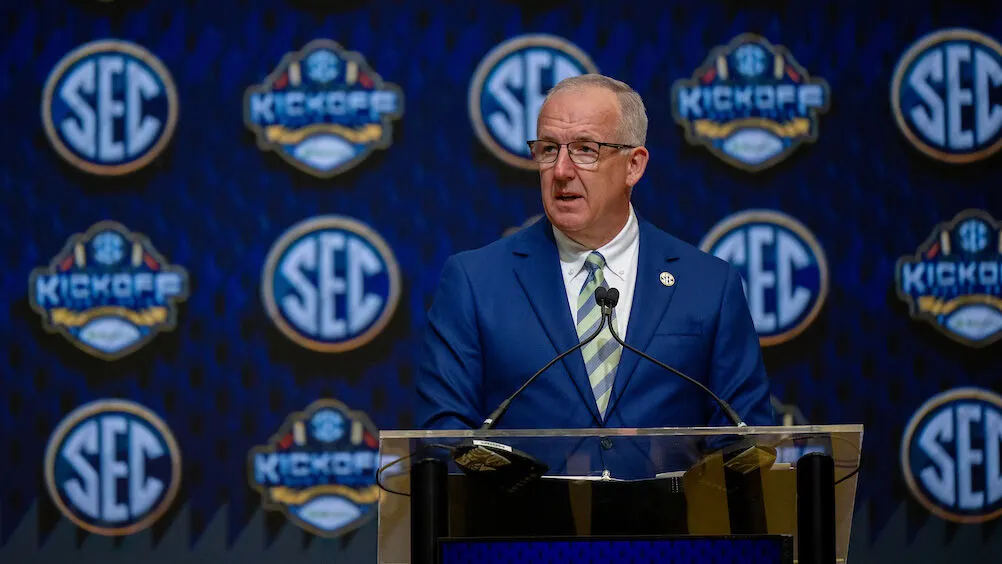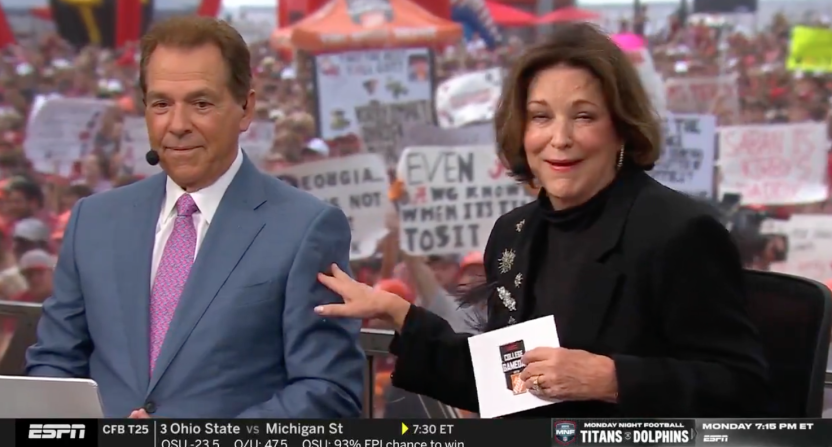Southeastern Conference Commissioner Greg Sankey opened the 2025 SEC Football Media Days with a call for collaboration and stability amid unprecedented transformation in college athletics, emphasizing unity and clarity as the league and NCAA navigate seismic changes in governance, revenue distribution and competition formats.
Addressing reporters Monday at the College Football Hall of Fame in Atlanta, Sankey returned the event to its historical roots, noting the SEC’s long-standing connection with the city since its inaugural 1933 meeting. “It’s a privilege to be with you once again,” Sankey said, embracing both the tradition and intensity that define SEC football.
Sankey acknowledged challenges facing the conference—including the recent loss of several key figures, such as longtime Arkansas Democrat-Gazette reporter Bob Holt and officiating icon Bobby Gaston—but shifted swiftly to the broader turbulence shaking college sports nationally. He cited complex issues ranging from Congressional action and state laws to the “messy” implementation of the NCAA’s House settlement, which is redefining how athletes are compensated and how universities structure their athletic programs.
“We’re in the middle of change, and in the middle of anything significant, it will get messy. That doesn’t mean you leave,” Sankey told reporters, employing his marathon-running experience as a metaphor for persevering through the early “bumps in the road” of substantial reform.
Sankey highlighted SEC successes during its first year as a 16-school “superconference,” including record-breaking television viewership and leading national attendance in several sports. He celebrated the league’s achievements while acknowledging the changing landscape: “College athletics is not broken. It is under stress. It is strained. The answers we seek are tied into the complexities that have been referenced over time,” said Sankey.
The commissioner reiterated the need for national standards and called for renewed Congressional engagement, backing bipartisan efforts such as the recently introduced SCORE Act. Sankey said, “This isn’t about preserving the status quo. This is about providing clarity and the opportunity to build a future with opportunities in healthy support”.
On competitive matters, Sankey confirmed that debate continues on the SEC’s future football schedule—whether to expand from eight to nine conference games—and the implications of upcoming College Football Playoff (CFP) expansion. He stated, “In the SEC we’re not lacking for quality competition among our 16 football teams, but we’ll continue to evaluate whether increasing the number of conference football games is appropriate for us.” Regarding CFP format talks with the Big Ten, Sankey emphasized the importance of responsible use of the leagues’ growing influence: “When you’re given authority, you want to be responsible in using that authority. I think both of us are prepared to do so”.
Asked about the prospects of exploring international events and private equity involvement, Sankey expressed openness to new opportunities but remained cautious about the practical and economic realities for the SEC. “The foundation and strength of our conference fundamentally is built on those communities,” he said, pointing to the deep ties between SEC programs and their home cities.
As the conference braces for another season of on- and off-field changes, Sankey closed with optimism about the league’s capacity to adapt. “If you watch the college football landscape change across the Southeastern Conference, we remain both proud of what we achieved and excited about our future. That future is not something we wait for. It is something we seek to shape,” he said.









